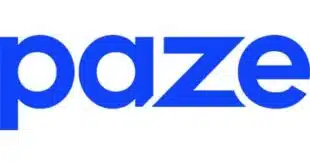The bane of payment cards and to a lesser extent demand-deposit accounts, identity fraud took less of a toll by some measures in 2010 than it has in the seven preceding years, according to new findings from Javelin Strategy & Research.
Javelin’s annual study found that 3.5% of U.S. adults were ID-fraud victims last year, down from 4.8% in 2009 and the lowest percentage since the study began in 2003. That means an estimated 8.1 million Americans were hit by ID fraud in 2010 compared with 11.1 million in 2009, the year of both the highest percentage and total number of victims since the Federal Trade Commission started the study. Estimated total losses were $37 billion, also the lowest since 2003.
Fraud on existing credit and debit card accounts led the decrease, reported by 2.8% of respondents in 2009 but only 1.9% in 2010. New-account fraud affected 1.3% of respondents in 2009 and 1.1% last year. Some 0.7% of respondents reported fraud on existing non-card accounts in 2009; the corresponding figure for 2010 was 0.5%. The new survey is based on telephone interviews with 5,004 randomly selected consumers, some of whom reported they were victims of more than one type of fraud. Identity fraud covers a broad range of new and old crimes, everything from card theft to takeovers of existing accounts to creation by a criminal of a new account in another person’s name.
The modestly improving economy, one indication of which is retail sales, is a major reason for the improvements. James Van Dyke, president and founder of Pleasanton, Calif.-based Javelin, notes that retail sales improved last year. “As retail sales go up, levels of fraud go down, and vice versa,” he tells Digital Transactions News. “Our speculation on that is the less money criminals have to buy things at retail, the more motivated they are to get involved in identity fraud.”
A second big reason, according to Javelin: fewer consumers reporting they’d been notified of a data breach affecting their records. Seven percent of respondents reported receiving such notifications in 2010 against 11% from 2006 to 2008. Those findings also reflect research by the non-profit Identify Theft Resource Center.
The mean amount of fraud per victim from all types of ID fraud fell 8% to $4,607 from $4,991 in 2009. But not all of Javelin’s 2010 findings pointed in the desired direction. The mean cost of fraud borne by consumers was $631, up from $387 in 2009 and $511 in 2008. Van Dyke blames that on a relative shift in fraud from existing to new accounts, with consumers nearly always paying more in such cases.
The median victim fraud cost stayed even with those two earlier years at $750, and for many consumers, especially holders of credit and signature debit cards, it was $0 because of banks’ and the payment-card networks’ zero-liability policies. Such policies often don’t cover transactions requiring a personal identification number, however. In a query by Javelin of 27 major banks, only 44% have zero-liability for cardholders on PIN-debit purchases, and just 33% offer similar protection on ATM withdrawals, according to Van Dyke, who predicts those percentages will increase. “What we generally see is we’ll uncover a trend like this and consumer advocates will raise awareness,” he says.
The mean detection time for all types of fraud was 68 days in 2010, up from 59 in 2009, and the mean misuse time was 95 days, up from 84. The mean resolution time in hours was 33, up from 21 in 2009 and 30 in 2008. The reason for 2010’s increase is a cutback in the number of financial institutions providing 24-hour/seven-days-a-week resolution services, Javelin says.
Javelin took over the study from the FTC after the first year because the commission encountered budgetary problems, Van Dyke says. Javelin recruits sponsors to help defray costs; this year’s were Wells Fargo & Co., processor Fiserv Inc. and fraud and risk-management technology provider Intersections Inc. The sponsors were not involved in the survey’s data gathering, analysis or reporting, Javelin says.





